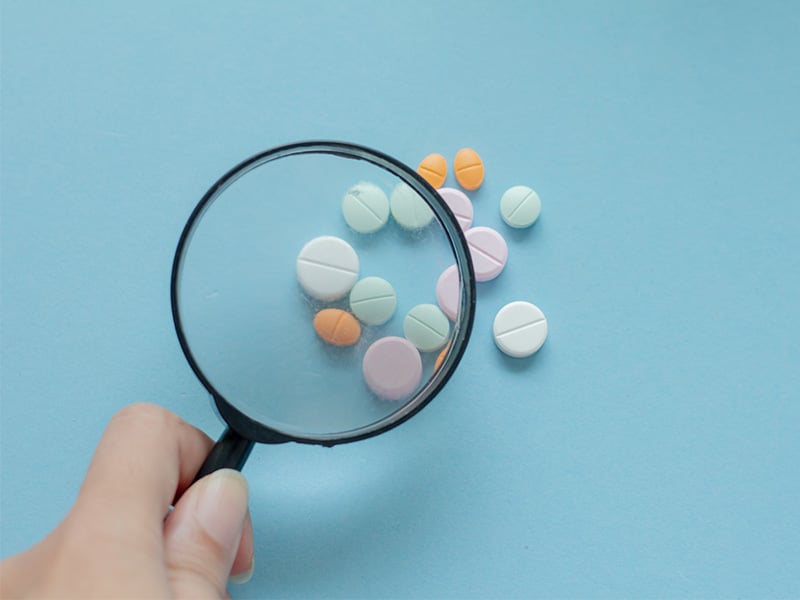What's on this page
What is CoQ10 (Co-enzyme Q10)?
CoQ10 (also known as Co-enzyme Q10 or ubiquinone), is a vitamin-like substance found in every cell of your body. Particularly high levels are found in the heart and brain.
CoQ10 benefits
CoQ10 has an important role in helping your cells produce energy. It may also act as an antioxidant, which means it can help reduce inflammation and keep your blood vessels healthy.
CoQ10 foods
Small amounts of CoQ10 are found in some foods, such as meat, fish and nuts, but your body can also make it.
CoQ10 supplements
Under certain circumstances, such as ageing, statin use and heart failure, it is thought that your body’s production of CoQ10 may slow down, and the amount in a normal diet may not be enough to provide what you need.
As a result, CoQ10 has become widely available as an over-the-counter nutritional supplement.
CoQ10 and statins
Statins reduce the amount of cholesterol your liver makes. They do this by blocking a chain of chemical reactions in your body’s cells which is needed to make cholesterol. This same chain of reactions is also used to produce CoQ10. So, taking statins may lead to lower levels of CoQ10.
One theory is that lower levels of CoQ10 in the body might be linked to the muscle cramps and aches that some people experience when taking statins.
However, studies looking at the effect of taking CoQ10 supplements on muscle pain are mixed and inconclusive.
Muscle pain and cramps are difficult to diagnose and may be affected by the dose and type of statin, as well as a person’s age, gender, genetics and overall health.
Always talk to your GP or cardiologist before taking any supplements.
Our verdict: current evidence does not support taking CoQ10 supplements for statin-attributed muscle pain or cramps and UK clinical guidance from NICE also advises not to use them for this purpose.
If you are a taking statins and experiencing muscle pains, speak to your doctor as a change in dose or type of statin may help. Do not stop taking your statins without first talking to your GP.
CoQ10 and heart failure
Heart failure is a condition where the heart does not pump blood around the body as well as it should.
Some people with heart failure have reduced levels of CoQ10 in their blood and heart tissues. Because of its antioxidant activity, it is thought that CoQ10 may help protect heart cells from damage and have a role in conducting signals within the heart and generating energy.
In one of the first long-term trials (Q-SYMBIO), published in 2014, 420 heart failure patients were either given 3 x 100mg CoQ10 per day or a placebo for 2 years alongside their usual heart failure medicines. After 2 years, those taking CoQ10 had fewer heart problems and fewer hospital admissions compared to the placebo group.
A more recent review of studies also suggests that low levels of CoQ10 may be linked to worse heart failure symptoms and more frequent hospitalisations, and taking CoQ10 supplements might improve heart failure symptoms.
The benefits of CoQ10 supplements for heart failure remain unclear and more research is needed.
However, the researchers say that current evidence is not strong enough to draw conclusions about the safety and usefulness of CoQ10 supplements for people with heart failure.
There is no agreed effective dose for CoQ10, and its absorption can vary a lot according to the type of supplement taken. As supplements are not regulated in the same way as medicines in the UK, it is hard to know how much of CoQ10 you are actually getting in each tablet.
Our verdict: some studies show that CoQ10 supplements may improve heart failure symptoms and reduce hospitalisation when taken alongside prescribed heart failure medicines. However, the benefits remain unclear, and more research is needed.
At the moment, CoQ10 is not recommended in UK and international heart failure treatment guidelines and it is not prescribed by UK doctors.
CoQ10 side effects
CoQ10 is generally considered safe to take with few side effects, but some studies report minor stomach-related effects such as nausea, indigestion and diarrhoea.
CoQ10 supplements may interact with blood pressure medicine and the blood thinning medicine warfarin.
Always talk to your GP or cardiologist before taking any supplements.
What to read next...









